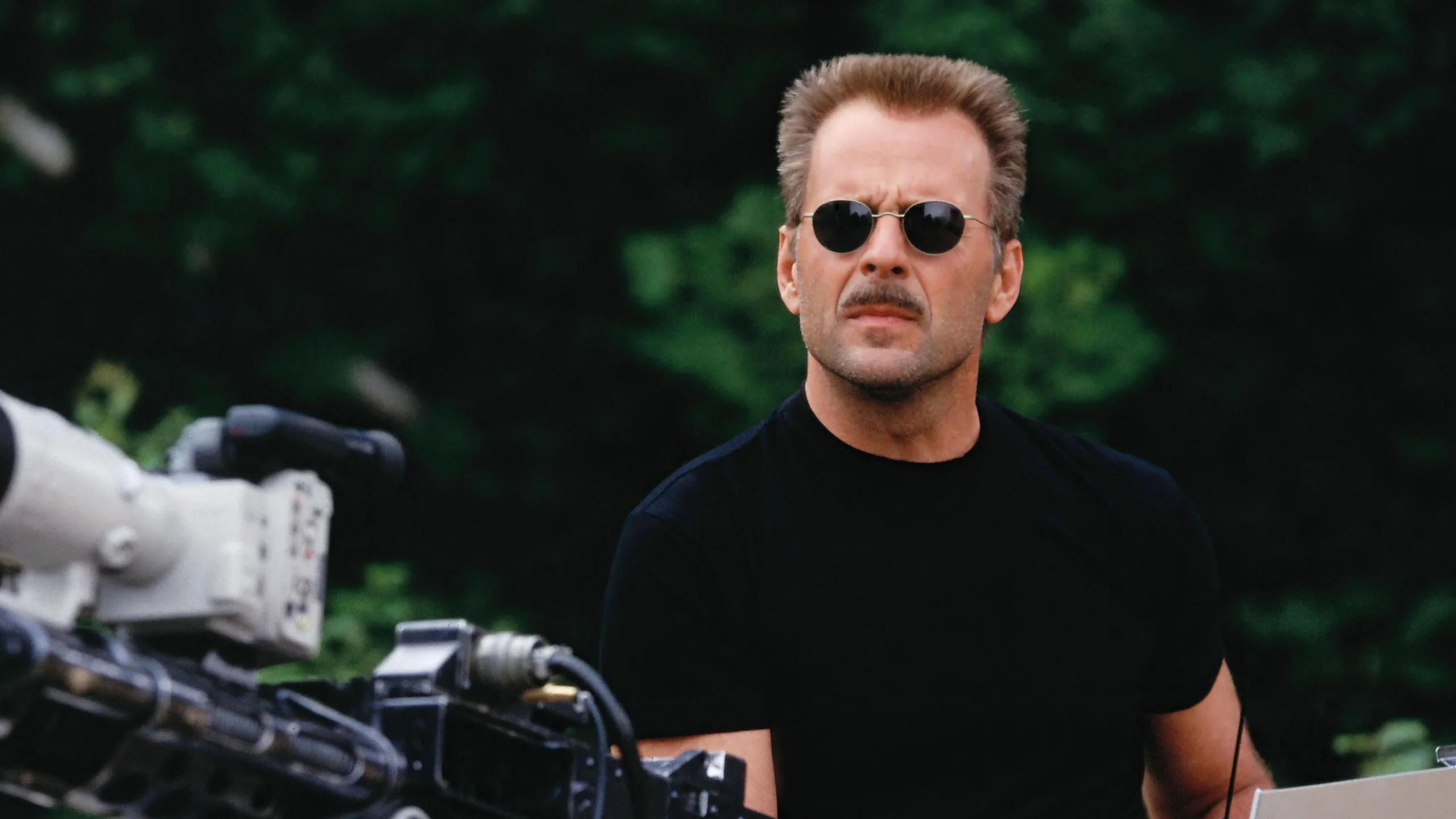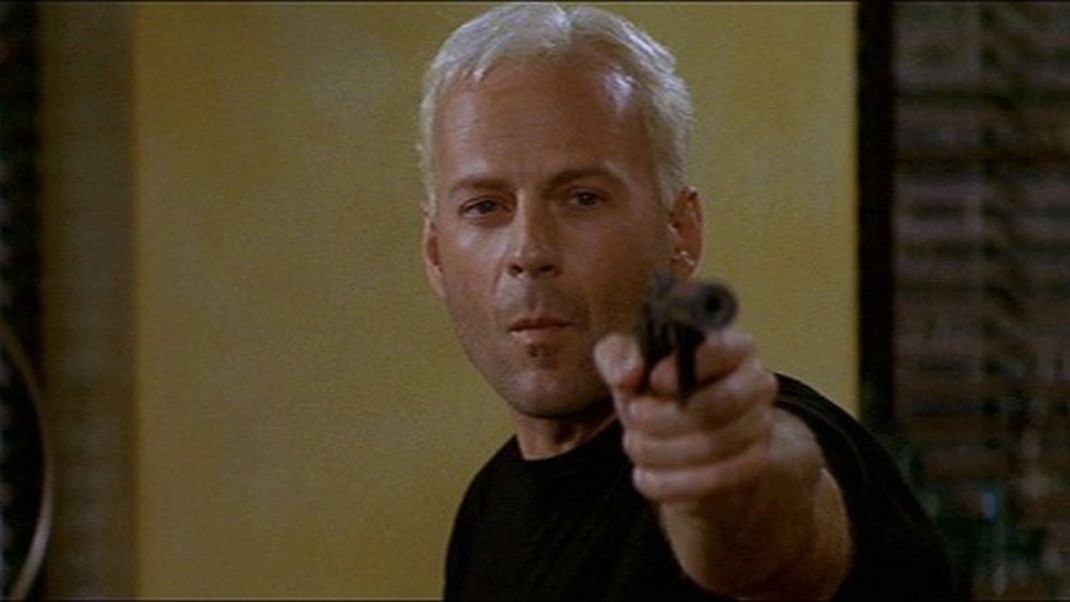🎬 The Jackal (1997)

The Jackal (1997) Review
Michael Caton-Jones’ The Jackal (1997) is a sleek yet uneven remake of the 1973 classic The Day of the Jackal, trading the original’s meticulous procedural approach for a more action-oriented thriller. Featuring Bruce Willis in a rare villainous role and Richard Gere as his determined pursuer, the film attempts to deliver a high-stakes game of cat and mouse but often falls short of the tension and nuance of its predecessor.
Plot Overview
The story follows “The Jackal” (Bruce Willis), a highly skilled and elusive assassin hired by a Russian mobster to eliminate a high-profile target in the United States. His mission is revenge for a deadly raid that killed a mob boss’s brother. To stop him, FBI Deputy Director Carter Preston (Sidney Poitier) and Russian intelligence officer Valentina Koslova (Diane Venora) recruit Declan Mulqueen (Richard Gere), an imprisoned former IRA sniper with a personal vendetta against the Jackal.
As the Jackal prepares for his mission with meticulous precision and chilling adaptability, Mulqueen uses his knowledge of the assassin’s methods to track him down. The narrative unfolds across multiple locations, culminating in a tense and explosive confrontation.
Performances
Bruce Willis delivers a chilling performance as the enigmatic Jackal, employing a variety of disguises and personas to mask his true identity. His portrayal is cold, calculating, and devoid of remorse, effectively making him a formidable antagonist. However, the character’s lack of depth and backstory leaves him feeling more like a plot device than a fully realized villain.
Richard Gere’s portrayal of Declan Mulqueen is a mixed bag. While Gere brings a rugged charm and intensity to the role, his Irish accent is inconsistent and occasionally distracting. Despite this, his chemistry with Sidney Poitier’s Carter Preston adds a layer of camaraderie to the story, as the two men form an uneasy alliance to thwart their mutual enemy.
Sidney Poitier, in one of his final film roles, brings gravitas and authority to his portrayal of Preston. Diane Venora’s Valentina Koslova is equally compelling, though her character’s arc is underdeveloped, leaving her potential largely untapped.
Action and Direction
The action sequences in The Jackal are well-executed and provide moments of genuine excitement. From high-speed chases to tense shootouts, the film delivers on the kinetic thrills expected of a 1990s action thriller. The climactic sequence, set against the backdrop of a public event, is a standout moment that highlights the Jackal’s ruthlessness and ingenuity.
Michael Caton-Jones’ direction emphasizes style over substance, prioritizing spectacle over narrative cohesion. While the film’s glossy visuals and international locations add to its appeal, the pacing is uneven, with slower scenes occasionally sapping momentum from the plot. The decision to modernize the story for a 1990s audience results in a more generic action-thriller aesthetic, which lacks the distinctive tone of the original.
Themes and Characterization
The film touches on themes of revenge, loyalty, and the moral ambiguity of those who operate in the shadows. However, these themes are explored superficially, with little time devoted to fleshing out the motivations and internal struggles of the characters. The Jackal himself remains an enigma, which, while contributing to his mystique, prevents the audience from fully understanding the stakes of his mission.
Declan Mulqueen’s character offers potential for exploring the complexities of a man torn between redemption and revenge, but the script fails to delve deeply into his psyche. Similarly, the dynamic between Preston and Koslova hints at an intriguing partnership that is ultimately underutilized.
Strengths and Weaknesses
One of the film’s strengths lies in its technical execution. The cinematography by Karl Walter Lindenlaub captures the tension and urgency of the story, while the score by Carter Burwell effectively underscores the action and suspense. The film’s international scope, with scenes set across the U.S., Canada, and Finland, adds a sense of scale and urgency to the narrative.
However, the script’s shortcomings detract from the film’s overall impact. The characters are underdeveloped, and the dialogue often feels clichéd. Additionally, the film’s reliance on action over character-driven storytelling results in a narrative that is engaging but shallow.
Comparisons to the Original
Fans of the 1973 The Day of the Jackal may find this remake lacking in the original’s meticulous pacing and psychological depth. Whereas the original focused on the procedural elements of the assassin’s mission and the efforts to stop him, the remake leans heavily on action and spectacle, sacrificing subtlety and realism in the process. The result is a film that feels more like a product of its time but less timeless in its appeal.
Conclusion
The Jackal (1997) is an entertaining yet flawed action-thriller that succeeds in delivering high-stakes excitement but falters in its attempt to balance character development with spectacle. While Bruce Willis and Richard Gere provide memorable performances, the film’s lack of narrative depth and uneven pacing prevent it from achieving greatness.
For fans of 1990s action films or those curious to see a different take on the Jackal story, this remake offers enough thrills to warrant a viewing. However, those seeking a more cerebral and emotionally resonant experience may find themselves yearning for the original’s mastery of tension and storytelling.